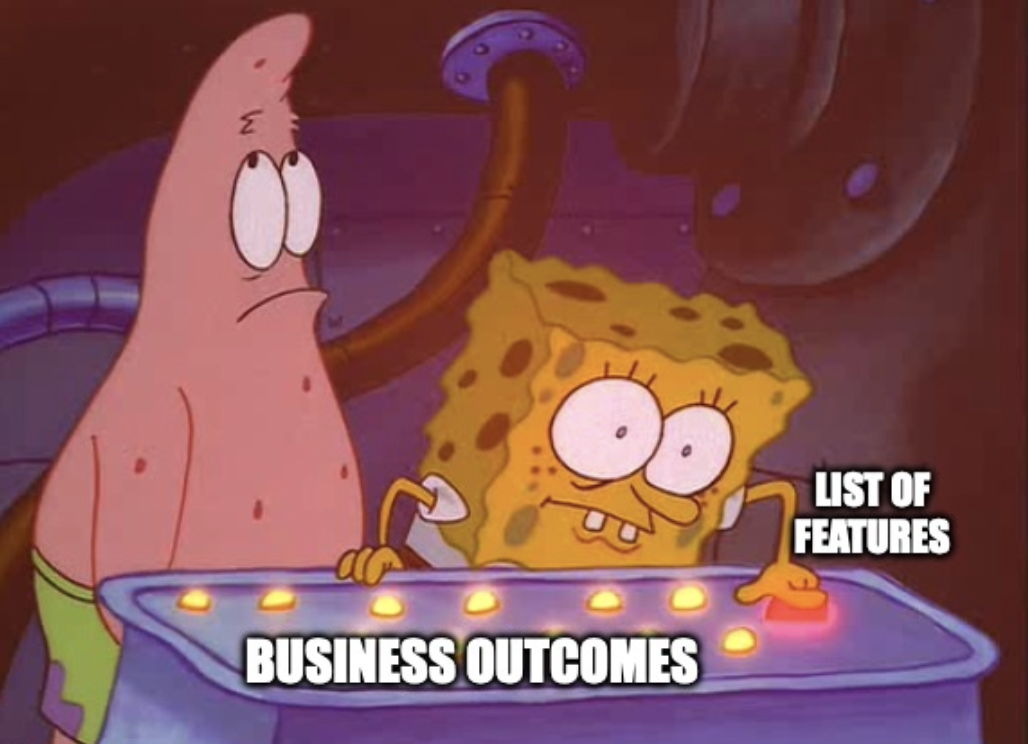Beyond Gong: A New Era of Sales Coaching by AI and Behavioral Science


Context
In the dynamic world of sales enablement, the challenge of balancing effective coaching with measurable ROI is more pressing than ever. For sales enablement leaders like the one we spoke to, who works in the highly regulated healthcare industry, the stakes are even higher. Her focus is clear: maximize the impact of enablement initiatives through data-driven strategies and actionable insights, all while managing the complexities of a shifting sales environment.
Let’s dive into how sales enablement leaders can navigate these challenges, focusing on metrics, coaching, and the role of innovative tools in today’s sales landscape.
The changing sales coaching landscape
The sales landscape has changed a lot over the past decade. Back in 2012 to 2019, selling was a breeze with plenty of cash flowing and investors eager to jump in. But things are quite different now. With economic uncertainty and tougher competition, sales have become a real challenge, demanding a more strategic and data-driven game plan.
For sales enablement pros, like her, it's time to adapt to this new world. The old-school methods—like long PowerPoint decks and weekly training sessions—just don't cut it anymore. Instead, there’s a growing need for a smarter approach that weaves metrics and real-world data into every part of the sales process.
Sales reps struggling - evaluating solutions
The sales director and his team realized they needed to explore new tools and strategies to close the gap. They began evaluating various options, including Unify, and Zime, to see which could provide the support they desperately needed. it was crucial to find a solution that aligned with their specific needs and budget constraints. While Unify was initially considered, the team ultimately decided to move forward with Lantern AI, driven by a desire to cut costs without compromising effectiveness.
However, one solution that stood out was Zime. This AI-driven tool offered a unique approach: building a data-driven sales playbook that adapts to the real-world actions of sales reps. Unlike traditional playbooks filled with academic questions, Zime analyzes calls, evaluates the application of value-based selling techniques, and creates actionable insights that reps can immediately implement and eases the job of a sales enablement leader.
The role of data driven sales playbooks
A data-driven sales playbook is essential in this new environment. Unlike static documents that collect dust on a shelf, a living sales playbook is continuously updated based on actual sales data. This playbook evolves with the sales process, incorporating insights from tools like Gong and Salesforce to provide actionable guidance for sales reps.
Here’s how it works:
1.
Integration and Automation: Tools like Zime automate the conversion of existing materials—such as PowerPoint slides and webinars—into actionable insights. By analyzing sales activities and outcomes, these tools create a dynamic playbook that aligns with each stage of the sales pipeline.
2.
Actionable Insights: Instead of sifting through hundreds of slides, sales reps receive specific, actionable steps tailored to their current deal stage. For example, if a rep needs to address a prospect’s budget concerns, the playbook provides precise questions and strategies to address this issue effectively.
3.
Continuous Improvement: The playbook is not a static document but a living entity that adapts based on real-time data. This ensures that sales strategies are always relevant and aligned with the latest market conditions.
Maximizing ROI through metrics
For sales enablement leaders, demonstrating ROI is a critical aspect of their role. The sales enablement leader we had a conversation with, emphasizes the importance of tying enablement initiatives to measurable outcomes. Here’s how data-driven approaches can help achieve this:
1.
Benchmarking and Tracking: By benchmarking sales reps’ performance against key metrics, such as conversion rates and pipeline velocity, enablement leaders can track the effectiveness of their strategies. This involves analyzing call recordings, email interactions, and sales outcomes to identify patterns and areas for improvement.
2.
Enhanced Coaching: Traditional coaching methods—like manually reviewing call recordings—can be time-consuming and inefficient. AI-driven tools automate this process, providing managers with actionable insights and recommendations without the need to listen to every call. This allows for more targeted coaching and quicker identification of areas where reps need support.
3.
Real-Time Feedback: Data-driven tools provide real-time feedback, helping reps and managers stay on top of performance. For instance, Zime’s integration with Slack and Teams allows reps to receive prep checklists and actionable insights before calls, ensuring they are always prepared and aligned with the sales strategy.
Struggles of sales coaching and training
Sales is challenging enough as it is, and sales enablement can sometimes feel like adding even more layers to the puzzle. Between creating playbooks, organizing training sessions, and tracking metrics, things can get overwhelming fast. But here’s the good news—a dynamic, living sales playbook can be a total game-changer for your sales team. It not only helps reps perform better and close more deals, but it also boosts win rates and cuts down on the need for constant coaching or endless training sessions.
Sure, most companies have their training routines—weekly, quarterly, or whatever works for them. But let’s be real, throwing a hundred slides at your reps isn’t going to magically improve sales. Reps often wonder why they’re sitting in these sessions and what the actual ROI is. You could have all the call recording tools and coaching platforms in the world, but if your reps don’t get your sales strategy or aren’t actually using the playbooks, it’s not going to move the needle.
Instead of just running training sessions and crossing your fingers, why not focus on benchmarking your reps during real calls? See how well they’re actually using the playbook, and if they’re not quite there yet, use weekly reviews to show them measurable progress in playbook adoption. This way, you’ll make sure that training isn’t just a checkbox but a real boost to your team’s performance and alignment with the sales strategy.
Here’s how AI tools like Zime can solve these challenges:
1.
Personalized Sales Coaching: This comes as a relief for sales managers. They don’t have to go through each and every call recording or personally coach each rep with personalized feedback on how to make the next sales/discovery call better. Moreover there are tangible results on the loopholes that can be improved.
2.
Just-in-Time Actions: Zime offers just-in-time actions that are integrated into communication channels such as Slack and Teams. These actions are tailored to the current deal stage and provide sales reps with the exact guidance they need to succeed before and after a sales call.

3.
Performance Dashboards: Effective coaching also requires visibility into performance metrics. Modern tools offer dashboards that provide detailed insights into both team and individual performance. This allows enablement leaders to track progress, identify trends, and make data-driven decisions to improve sales outcomes.

Addressing Compliance & Security
When picking vendors, it's smart to go for those with SOC 2 and ISO certifications, and HIPAA compliance if needed. These badges of honor mean your data is handled securely and by the book. Choosing certified vendors helps keep your data safe and shows you're serious about staying on the right side of regulations. It’s a win for both security and peace of mind!
Next up, make sure any new tools play nicely with your existing systems, like Salesforce. Smooth integration is key to keeping your data accurate and your sales activities on point. No one wants to deal with messy data or clunky processes, right? Starting with systems that fit together from the get-go saves you time and headaches later on.
And don’t forget to pick vendors who are all about transparency and support. You want partners who are clear about their practices and ready to jump in if any compliance concerns pop up. This openness builds trust and ensures that any hiccups are quickly sorted out. In the end, a vendor who’s got your back is worth their weight in gold!
Zime vs Gong
Our product stands apart with not only its cutting-edge AI technology but also behavioral science that automates the generation of granular sales insights from call recordings and emails. Unlike manual processes or limited smart trackers, our system creates thousands of AI-driven smart trackers that continuously learn and improve, providing unparalleled depth of sales intelligence.
The platform seamlessly integrates with your existing tech stack, including CRMs like Salesforce, call recording tools like Gong, and communication channels like Slack. This ensures easy adoption without disrupting established workflows, allowing reps to benefit from just-in-time coaching within their familiar environments.
With SOC 2 compliance and the ability to meet HIPAA requirements, our solution prioritizes robust security and data privacy. Healthcare organizations can confidently leverage our technology while adhering to stringent industry regulations.
As the Sales enablement leader, emphasized the significant challenge of managing and coaching sales reps effectively. "The image of the graveyard, and saying 'Gong calls and no one listens,' really resonates. It highlights the massive burden we're facing—coaching has become such a time sink. Listening to calls, coaching reps, it's all incredibly manual and takes forever. It's just not efficient. But what really caught my attention was the point about tracking conversion metrics. Having the ability to double our pipeline reviews while cutting the time spent in half would be incredibly valuable. Being able to track conversions and enhance those pipeline reviews would make a huge difference for us.
Overview
Changing Sales Landscape: The shift from a booming market to a more challenging sales environment requires a data-driven approach to sales enablement.
Data-Driven Sales Playbooks: Creating dynamic, actionable playbooks that adapt based on real-time data ensures relevance and effectiveness.
Maximizing ROI: Tying enablement initiatives to measurable metrics and leveraging AI-driven tools for coaching can significantly improve ROI.
Streamlining Coaching: Automated coaching tools and performance dashboards enhance efficiency and effectiveness in training and support.
Compliance and Security: Ensure that sales enablement tools adhere to strict compliance standards and integrate seamlessly with existing systems.
By adopting these strategies, sales enablement leaders can better navigate the complexities of today’s sales environment and drive measurable success for their teams.



